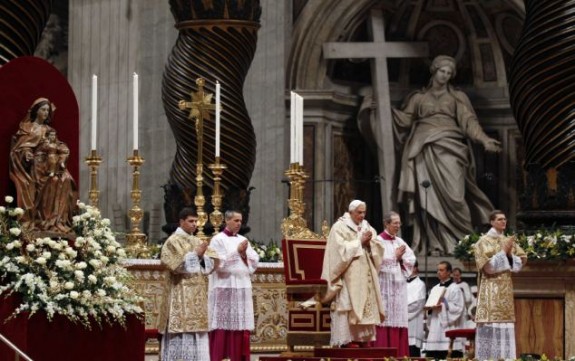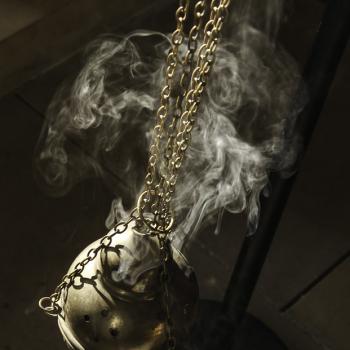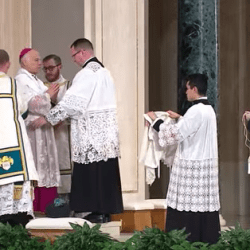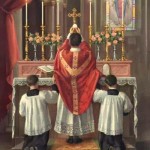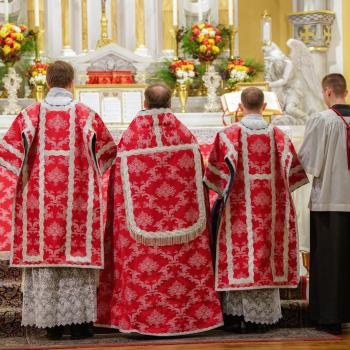Over at the Evangelical Channel of Patheos, sociologist Margarita Mooney recounts her experience of attending Midnight Mass at St. Peter’s:
The most moving part of the Mass for me was after everyone had received communion and returned to their seats, a peaceful quiet came over the basilica. Suddenly, trumpets blared announcing the birth of the Christ. After one minute of stunning trumpets, the Schola burst out singing:
”Adeste, fideles, laeti triumphantes, venite, venite in Bethlehem, natum videte, regem angelorum. Venite adoremus, venite adoremus Dominum.” (O come, all ye faithful, joyful and triumphant. Come ye, o come ye, to Bethlehem, come and behold him, born the king of angels; O come let us adore him, Christ the Lord.)
The singing is so crystal clear that I would have sworn I heard a single boy’s voice–just listen to the “venite adoremus” and tell me that doesn’t sound like just one single voice! But watching the performance of “Adeste, Fideles” on YouTube (which I’ve seen at least 10 times in the last 24 hours) I concluded that the entire boys’ choir is so perfectly united they sound like they are one voice. The men’s voices sound like the background chorus to the real stars.
When one of the nuns from Brazil behind me joined in her with own angelic voice singing “venite adoremus”, I then joined in with the crowed. We sang 4 verses in Latin (with the English translations in the booklet we got as we entered). Tears rolled down my face during this stunning musical performance, one that stimulates both active partcipation and deep contemplation…
…Although many other people do not share the Catholic or Christian faith, the peace Christians long for is a deep human longing most people share. Furthermore, ritual is a universal language–which is why nearly all religious communities have rituals and many secular events, such as national parades, are highly ritualistic. In the best of cases, rituals both elicit social solidarity and incite personal transformation. As sociologist Emile Durkheim pointed out long ago, the effects of rituals stay with us long after the ritual itself ends. When I feel personally weak or wonder how the world can overcome the encroaching darkness, I will recall the trumpet blast in St. Peter’s Basilica on Christmas Eve 2012 and my own hopeful singing “Venite adoremus Dominum!” and be taken back to that jubilant liturgy.

